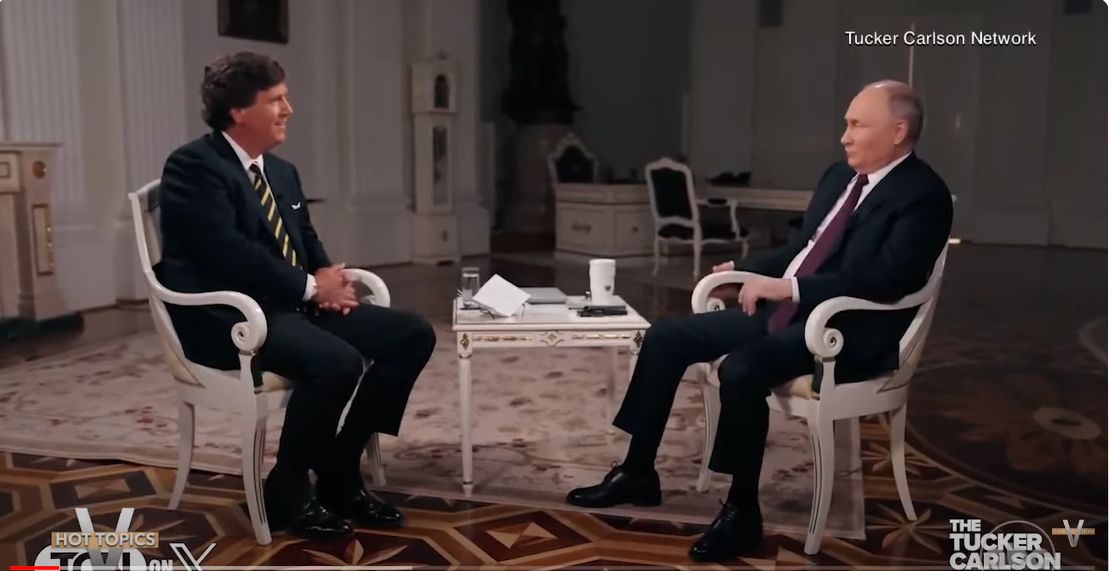Tucker Carlson, while speaking before the World Government Summit in Dubai, says his recent trip to Russia, to interview Vladimir Putin, “radicalized” his perception of America and that it angered him against its leaders. Many would say that Carlson, as Fox News’s chief spin doctor and institution-hating instigator, is already a “radical”. Indeed, the whole crux of MAGA, to “Make America Great Again”, implies that it is no longer great, that it is in decline and needs to be “fixed.” For Trump followers like Carlson, America is broken.
“What was radicalizing, very shocking, and very disturbing for me was the city of Moscow, where I’d never been, the biggest city in Europe, 13 million people. And it is so much nicer than any city in my country. I had no idea. My father spent a lot of time there working for the U.S. government in the 1980s and it barely had electricity.
And now it is so much cleaner and safer and prettier, aesthetically, the architecture, the food, the service, than cities in the U.S…this is not ideological. How did that happen? I don’t think the average person cares as much about abstractions as about the concrete reality of his life.”
Tucker’s “reality”, when it comes to the price of groceries, for example, is limited to the correlation between the prices he saw on his visit and the prices he’s experienced back home, but he disregards the fact that the median household income of Americans is nearly double that of the average Russian. Like anyone else, he tailors his “evidence” to fit his narrative.
Where does Carlson’s all-too-obvious bias towards Russia and criticism of his own country come from?
Carlson’s claim that people don’t care as much about abstractions as the concrete reality of life is particularly puzzling when you consider that sensationalized abstraction is the business model behind his own media—and specifically, of Fox News, where he was the standout star and gadfly.
Tucker Carlson thinks of Moscow as a safe city; but it is the conservative media’s own rhetoric that has created a perception of American cities as riddled with ubiquitous crime.
The narrative ignores the reality that we are living in one of the safest and most secure places on the planet and that our quality of life is exponentially higher than a massive portion of the world’s population.
The harsh view that he holds of the U.S. may explain his soft treatment of Putin during the interview.
The Russian President himself said as much, when speaking to Russian state TV. He said he had thought Carlson was a dangerous person, “because I honestly thought he would be aggressive and ask so-called sharp questions. And I wasn’t just ready for that, I wanted it, because it would have given me the opportunity to respond sharply in kind … But he chose a different tactic.”












